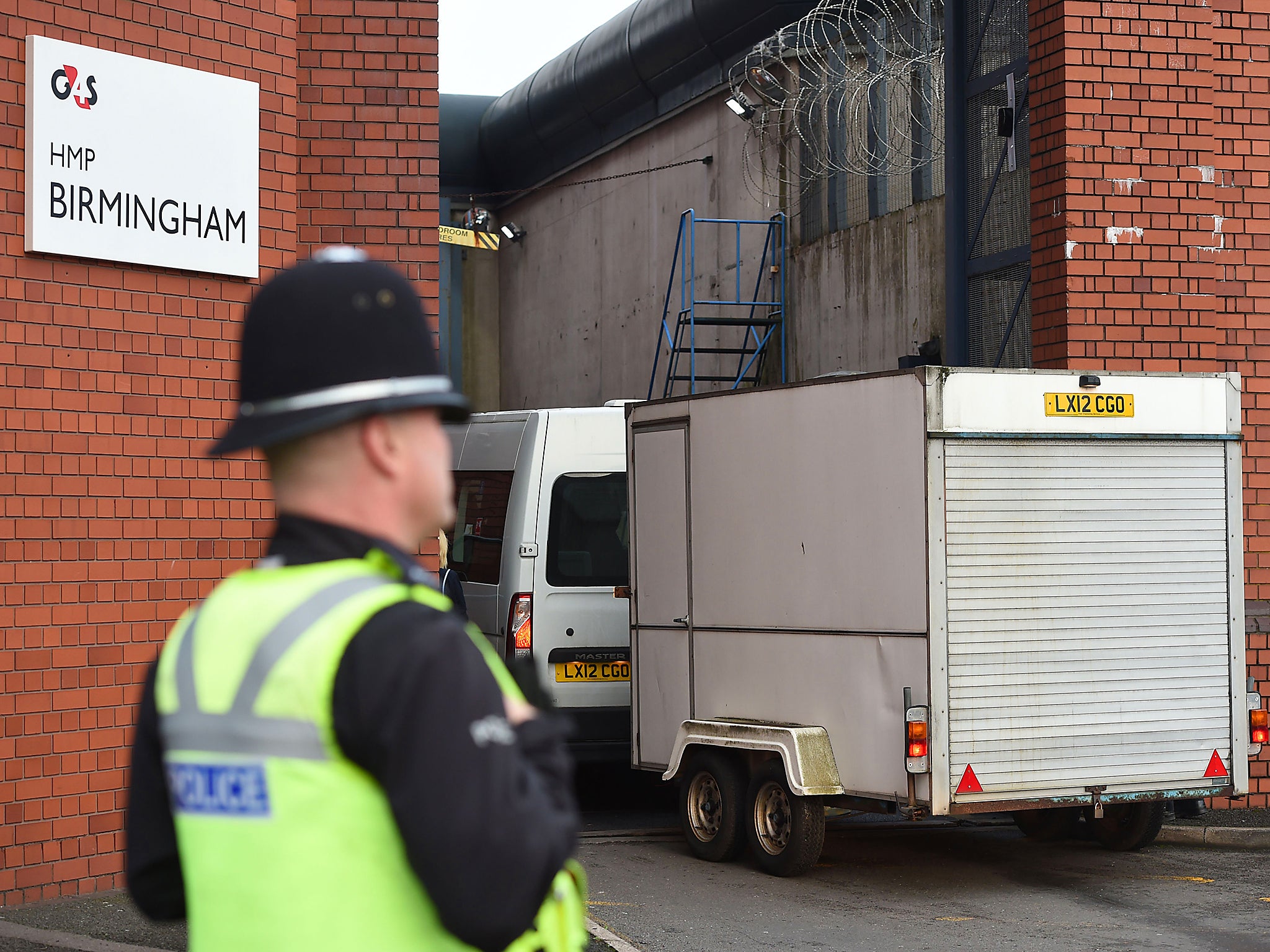G4S Birmingham prison scandal once again exposes the flaws in outsourcing
Ask yourself how a private company can run a jail more cheaply than the state can while still making the sort of returns shareholders demand

Your support helps us to tell the story
From reproductive rights to climate change to Big Tech, The Independent is on the ground when the story is developing. Whether it's investigating the financials of Elon Musk's pro-Trump PAC or producing our latest documentary, 'The A Word', which shines a light on the American women fighting for reproductive rights, we know how important it is to parse out the facts from the messaging.
At such a critical moment in US history, we need reporters on the ground. Your donation allows us to keep sending journalists to speak to both sides of the story.
The Independent is trusted by Americans across the entire political spectrum. And unlike many other quality news outlets, we choose not to lock Americans out of our reporting and analysis with paywalls. We believe quality journalism should be available to everyone, paid for by those who can afford it.
Your support makes all the difference.Group 4 became a national joke when, just three weeks after starting the first private prisoner transportation service in the UK, it managed to lose seven of its charges.
But there were no red cards issued to the company, or to its successor, G4S. In fact, the latter has expanded and now runs prisons and other detention centres too. With all too predictable results
Birmingham prison has been taken back into public hands in the wake of a damning report by inspectors. It is no joke. The inspection team found the place had slipped into a “a state of crisis” in the space of just 18 months.
Their report highlights “appalling violence” and “bullying” amid “squalid” living conditions.
Rubbish had built up in the jail’s “filthy” communal areas. There were widespread problems with insects, cockroaches, rats and “other vermin”. Blood lay on the floor next to droppings.
More than 70 per cent of inmates felt unsafe. The deputy chief inspector met “an obviously distressed man sitting on some scruffy material on the springs of his bed”. He repeatedly said: “They stole my mattress.”
Another man, with personal hygiene problems, had been hosed down by other prisoners. His door bore a poster saying “Say No to BO”.
Staff were said to “lack both confidence and competence” in key skills. They routinely locked themselves in their offices. Some were found asleep during lock in periods.
And those are just a few of the lowlights.
Crisis? For once that overused word seems entirely appropriate. Reading the inspectors’ report, you get the impression that something even worse might have been due.
Surprising? No, that’s one thing that this isn’t. Not even remotely. Not if you look into G4S’s history.
Here are some examples of what I found when I did that: four team leaders were fired after allegations that staff at the G4S run Medway Secure Training Centre in Rochester, Kent, assaulted inmates back in 2016. The chief inspector of prisons said, following a snap inspection, that “managerial oversight failed to protect young people from harm”. As well as bullying, high staff turnover was cited as a problem.
Just last year, a Panorama programme threw a deeply unflattering spotlight on a Brook House Immigration Removal Centre near Gatwick airport.
Then there was a Daily Record investigation in 2015 that found G4S guards asleep on the job after undertaking marathon 22 hour shifts.
And there is more, if you just care to look.
Here, for the record, is the company’s statement on Birmingham: “HMP Birmingham is an inner-city remand prison which faces exceptional challenges including increasingly high levels of prisoner violence towards staff and fellow prisoners.
“The wellbeing and safety of prisoners and prison staff is our key priority and we welcome the six-month step-in and the opportunity to work with the Ministry of Justice to urgently address the issues faced at the prison.”
If the “wellbeing and safety of prisoners and staff” was a key priority for government, then you might very well ask why G4S keeps finding itself in this position.
The answer, of course, is because ministers still – despite all evidence to the contrary, despite Carillon and the problems that have emerged with its outsourcing peers – thinks it can save money by palming off state functions on to profit driven corporations.
It doesn’t seem to matter how many problems are thrown up by doing so.
You want to know why situations like that at Birmingham keep cropping up? It’s really obvious. You just have to ask yourself how a private company can run a jail more cheaply than the state can while still making the sort of returns shareholders demand.
The problem is the government won’t ask that question.
Join our commenting forum
Join thought-provoking conversations, follow other Independent readers and see their replies
Comments